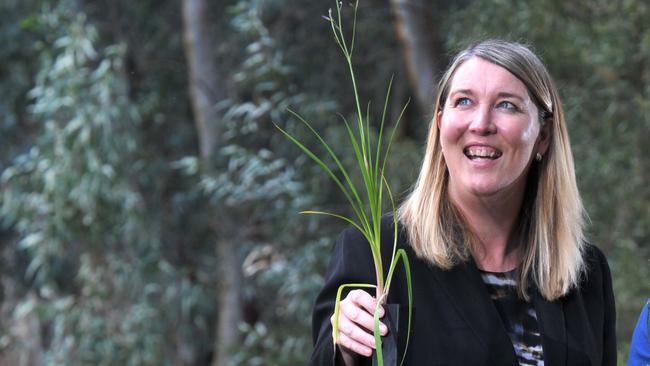Weekend professional: Jobs projects pay off for unemployed
Workskil Australia has placed thousands of people into more than 700 work for the dole projects since July 1.

Workskil Australia’s Nicole Dwyer says her job-matching organisation has placed thousands of people into more than 700 work-for-the-dole projects since July 1, allowing unemployed people to gain confidence and experience.
Workskil operates in South Australia, NSW and Victoria, and recently has expanded into regional areas, helping country clients find work experience and jobs. Dwyer says not-for-profit community organisations short on funds have jumped to take on six-month work-for-the-dole participants, including in administration and other white-collar roles, gardening, maintenance and mechanics.
“A lot of people think it’s controversial, but we’re finding for an unemployed person there’s motivation and social interaction, there’s purpose, and 99 per cent of the time they love it,” Dwyer says. “It’s a recent work experience for their resume. There are so many options for people and just about every person has an opportunity.”
The federal government introduced new requirements for the long-term unemployed in July, forcing people under 30 to complete six months on a work-for-the-dole project once a year for 25 hours a week. Those over 30 complete 15 hours a week.
Dwyer says the program also is putting money back into communities and providing supervisor jobs, paying for equipment and leading to paid roles at the end of several programs.
Programs for leaders
LeadershipHQ will be running programs for emerging leaders and on empowerment next month, including training and personal coaching.
The Brisbane events are aimed at aspiring leaders to help them gain confidence in their abilities and learn how to improve performance and productivity.
The EmpowYOU one-day intensive workshop will focus on resilience, confidence and strengths. A two-day EmpowHER workshop is aimed at women to help them recognise their strengths and personalities as part of their leadership style. Details: leadershiphq.com.au.
Do your homework
The days of candidates bluffing their way through job interviews are over, says Hays recruitment.
Hays managing director Nick Deligiannis says as technology improves and more people are able to access company information, research on an organisation and interviewer are important steps in securing work.
Deligiannis says there is no excuse for not doing research, and interviewers can tell if candidates have not done their homework.
“It’s there for all to see in answers that are not personalised, or in the work examples you cite that aren’t 100 per cent relevant to the role, the organisation or its clients,” Deligiannis says.
He says simple research through Google or LinkedIn can give a candidate an advantage and allow them to stand out.
Confidence up
Clicks IT Recruitment has found more than one in three people would change jobs if approached by a rival company.
Clicks managing director Ben Wood says among the 800 people who replied to his company’s survey there was a significant increase in confidence about the future of their employers since the last quarter, with 56 per cent now feeling positive, up from 44 per cent.
Wood says the number of permanent and contract employees who think they will lose their job has fallen from 61 per cent to 51 per cent.
Confidence in keeping jobs also has risen, from 7 per cent to 17 per cent.
There has been a decline in people expecting to look for a new job, from 57 per cent to 49 per cent, but those who would consider a change if approached has risen from 29 per cent to 35 per cent.


